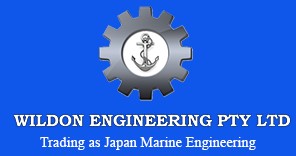Using Quality Yanmar Original Spare Parts Can Help Reduce Operational Costs
Blog | August 20th, 2019There’s no shortage of short-sighted attitudes in the engineering sector. Sure, quality assurance programs create a better breed of engineer, but that fact provides cold comfort out on a working equipment site. Out here, opportunistic machine maintenance workers look for untenable shortcuts, which just might include a low-quality spare part. Well, Yanmar systems engineers have never and will never endorse such practises. In any case, the code-compliant approach is almost always the safest and most economical way forward.
Driven by an Operational Costs Roadmap
In the short-term, it might make sense to purchase a box of non-proprietary spare parts. They’re cheaper, and they perhaps have a fair-to-middling reputation for providing hundreds of hours of run-time. No matter, an optimized engine life cycle management plan cannot be administered properly if it’s hamstrung by an engineering professional who has decided to implement an arbitrary cost-cutting program. Remember, Yanmar engines restrain massive amounts of power-transmitting energy. If those energies cause wear to a seemingly compatible but quality deprived replacement part, well, a machine’s performance is only as effective as its weakest part. Stuck with a non-branded, non-genuine repair component, a boat could very well end up stuck out in the middle of a lake or ocean until someone can call out a rescue craft.
Aggregating the Long-Term Costs
Back with the short-term gains, a short-sighted spare parts supplier seems to have saved the day. A boat propels itself smoothly over the waves. If it breaks down, then a generic spare part will soon have the craft sailing back into its shipping lane. Only, even if it’s functioning, it’s harming the engine and its transmission system. Bits of powdered metal break away, filters clog prematurely, and the equipment ages. Formerly good parts malfunction and need replacing. Fuel economy figures skyrocket because engine stresses are taking their toll. Essentially, fitted with a supposedly identical replacement component, that less expensive spare part isn’t designed to comply with Yanmars’ most stringently enforced engineering codes.
By installing genuine spares, everything remains copacetic. That’s a wordy way of saying all engine parts perform efficiently. They’ll last and not fail at the most inopportune moment. Granted, a genuine stored part may seem expensive when it’s first purchased, but it’ll pay for itself over the course of a year or two. Remember, savvy equipment repair techs know all about the “knock-on” effect. With the use of genuine Yanmar engine parts, that kind of effect is negligible so operational costs remain economical. A change of supplier later, beware of non-proprietary spares, which magnify this effect. They impact filter performance, compromise power transmission functions, and generally create a parts fickleness conundrum that can’t be afforded on a system that could be isolated for long stretches of time.
Optimized by NetwizardSEO.com.au
Recent Posts
- Yanmar Diesel Generators: Planned vs Predictive Maintenance Strategies for Remote Operations
- Mareflex SOLAS Marine Tapes: Safety Applications on Marine Vessels
- Yanmar Propulsion Systems: FPP vs CPP Propellers for 6EY and 6N Series Fuel Efficiency
- Mitsubishi K.K. Purifier Separator: The Key to Cleaner Fuel and Smoother Operations
- Kemel Air Seal Retrofits: Leak-Free Stern Tube Seals and Reduced Lube-Oil Risk
- Yanmar Auxiliary Generators: Sizing for Reefers, Hotel Loads, and Dynamic Positioning Systems
- Water Lubricated Stern Tube Bearing (EVR): Proven Technology for Smooth and Quiet Operations
- Marine Spare Parts Australia: Genuine Components for All Vessel Types
- Yanmar Diesel Generators – Powering Remote and Off-Grid Operations
- Authorised YANMAR Parts Supplier in Australia – Genuine Components Guaranteed
